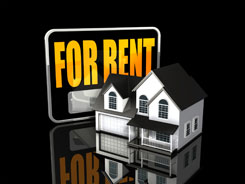Your condo-buying cheat sheet
Home prices have surged in the past year, forcing many first-time buyers to consider a condominium or townhome because these options are often less expensive. But is one of these the right choice for you?
In this month’s Buying Advice, we’ll arm you with the right tools to assess these communities, which come with a different set of rules and issues than tract homes. We’ll also consider the latest housing numbers so you know what to expect in the market, and we’ll review a Web tool for finding help with your down payment.
Condo 101
Buying a home is undoubtedly complex. But with condos, there’s even more to consider, from community rules to fees and finances.
Here are some of the things you should scrutinize when buying into a condo complex:
Finances: One of the biggest things most would-be condo dwellers overlook is the monthly cost of homeowners association (HOA) dues, which cover the cost of regular maintenance and repairs, says Ben Kakimoto, a Seattle condo specialist with Keller Williams.
In his city, dues can range from 25 cents to 55 cents per square foot each month. There’s also the possibility of special assessments or temporary fees to cover repairs or improvements.
Getting a good deal is not just about who has the lowest monthly fees. Often, Kakimoto says, communities will fail to collect enough dues from residents for years, and then wind up levying huge bills for repairs such as new siding or new elevators that can cost residents thousands.
The amenities you get for those monthly dues can vary widely and can include such things as window washing, a doorman, health center, party room and pool. «The thing you want to look at is what you are getting for your money” and how different buildings compare, says Bill Gassett of Re/Max Executive Realty in Hopkinton, Mass., a suburb of Boston.
You also need to know how a building or community deals with delinquent dues, says Frank Rathbun, a spokesman for the Community Associations Institute. How long does it wait before placing a lien on a unit?
You and your agent should sit down and comb through a community’s financial documents looking for upcoming assessments, as well as review its reserve study, which will tell you whether a property has enough money to cover needed upkeep and repairs in the years ahead.
“I also call the property manager, if there is one, and get information there, too,” says Kakimoto, who blogs about Seattle condos.
In addition to getting yourself qualified for a loan, you need to make sure your building passes muster. If it has too many HOA delinquencies or if litigation is pending, it might not make the grade with lenders, Kakimoto says. You can ask the building manager or seller’s agent if the building is eligible for Federal Housing Administration loans.
Rules and policies: Just as important as a community’s finances are its rules and regulations — or covenants, conditions and restrictions (CC&Rs.) If you don’t go over these with a fine-toothed comb, you might want to move out as quickly as you moved in.
For instance, you might find out that a particular building doesn’t allow dogs, or dogs of a certain size. So Fido would have to go. Or, you might discover that the wood-frame condo complex doesn’t allow hardwood floors — bad news for some allergy sufferers.
These rules can dictate everything from what you can put in your window to what you can hang on your front door or put on your balcony, Rathbun says, which means you might not be allowed that charcoal grill.
In many instances, you won’t be able to plant anything around your unit. Can you live without that tiny plot of tomatoes?
Satisfaction with management: You also want to figure out whether residents are generally satisfied with the property’s management.
Unfortunately, Kakimoto says, there aren’t a lot of public resources for buyers trying to research communities and their associations. However, board-meeting minutes are a great way to find out what repairs are coming up, what issues neighbors are squabbling over and how money is being spent. If a lawsuit is pending, you’ll also likely find some discussion of it here, he says.
Have your agent pull these minutes, and make sure to talk to a couple of residents to see if they are happy.
Source: http://realestate.msn.com/





in Social Networks